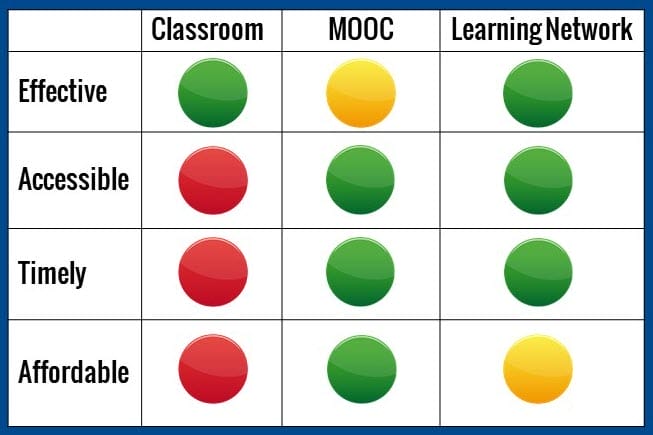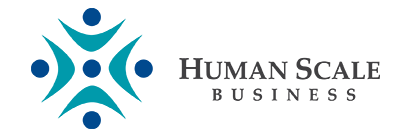Achieving Mastery through Learning Communities
Learning communities can offer the effectiveness of classroom learning with the accessibility and timeliness of MOOCs (Massive Open Online Courses) at a reasonable cost in time and money.
Achieving Mastery
The purpose of the communities we help our clients cultivate is to help people master something compelling together. That can mean learning how to be effective at expert services business development, managing the supply chain for a veterinary clinic, or growing the e-commerce channel of an established, middle-market company. Helping clients achieve mastery translates into more valuable relationships.
Achieving mastery means accumulating knowledge – adding lots of tools to your tool chest so to speak. However, mastery requires more. It means developing the wisdom to know which tools to use in the right circumstances and at the right time.
Classroom Learning and MOOCs
Learning is social. That may be especially true in the case of business learning. These days, social learning tends to occur in one of two settings: the classroom and/or via a MOOC. Both environments have historically emphasized direct instruction (i.e. lectures featuring the “sage on the stage”) and the delivery of content over peer conversation.
Given their mission to disseminate information and knowledge at scale, the opportunities for meaningful peer conversation in a MOOC is limited. In most cases, interactions consist of a threaded discussion forum. Nevertheless, MOOCs offer accessibility, timeliness, and low cost. They can be excellent for the early stages of achieving mastery.
In many ways, the familiar classroom environment remains the gold standard for learning and achieving mastery. They can accommodate beginners and accomplished learners. Classrooms support the adaptable delivery of content and conversation.
However, classroom learning is relatively expensive, inaccessible, and not particularly timely. As our friend Mario Schulzke says, it can lead to “just in case learning” rather than “just in time learning.”
Learning Communities
“Learning communities” are technology-facilitated (like a MOOC) but emphasize conversation (like the best classrooms). They leverage platforms such as Zoom and Mighty Networks in combination with intentional design that emphasizes Minimum Viable Structure.

Learning communities (or networks) are more scalable than a classroom but much more interactive than a MOOC. Particularly in the context of more advanced learners, learning communities represent a valuable alternative to the more familiar forms of learning environment.
Masterful Clients are Valuable
In short, learning communities are characterized by technology-mediated conversation. Content is important but plays a supporting, rather than featured, role.
By designing and hosting a learning community, you can help your clients and prospects develop the wisdom to use your services and products effectively. Their success translates into valuable relationships.
